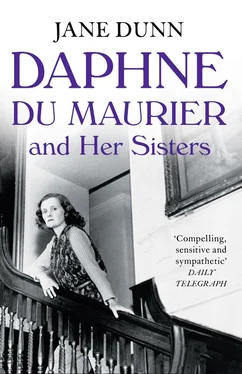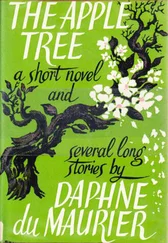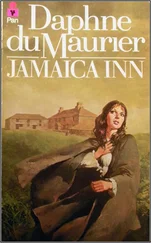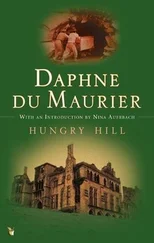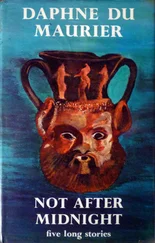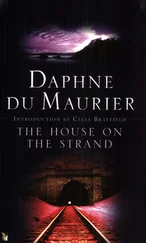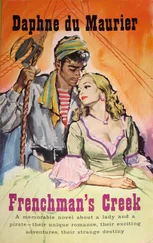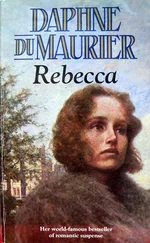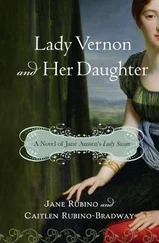Whereas following Angela’s clues have led me on an intriguing journey of dead-ends and surprising revelations, the search for Jeanne has been blocked from the beginning of my researches. Her lifelong partner, the intellectual and prize-winning poet Noël Welch, still lives in their exquisite house on Dartmoor with the best collection of Jeanne’s paintings, all her papers and her memories. Now in her nineties, she has been adamantly set against any biography of the sisters, despite writing her own insightful piece on them for The Cornish Review nearly forty years ago. There are vivid glimpses of Jeanne in other people’s letters and memoirs. In the few letters that have surfaced, an expressive, amusing, highly creative voice rings out through the years as freshly as when they were written.
The du Maurier girls could not have been more closely brought up. They were consciously sheltered from the contamination of school; for them there was no escape where, freed from controlling adults, they might speak of taboo subjects like sex and God and money. Largely lacking outside friends, the sisters were thrown on each other’s company and their own imaginations in a way that seems peculiarly intense compared to modern childhoods, with the ready distractions of the wider world. Moreover, they never quite managed to cast off the bonds of their family: the tentacles of the past spread into every part of their adult lives. Their influence on each other as children was potent and undiluted and it both held them back and spurred them on. For this reason I have dwelt at some length on their shared early life at Cannon Hall in London’s Hampstead.
In this, the last generation to be named du Maurier, as daughter after daughter was born, it was hoped that at least one of them would have been a son, to ensure the continuation of the family genius and name. As mere girls, however, they would have to do as best they could. It was good indeed, but could it ever be good enough? The superlatives that surrounded their parents and forebears entered the romance of their family inheritance. ‘These things added to our arrogance as children,’ was how Daphne described the effect in her scintillating recreation of a theatrical childhood in her novel The Parasites : ‘as babies we heard the thunder of applause. We went about, from country to country, like little pages in the train of royalty; flattery hummed about us in the air, before us and within us was the continual excitement of success.’ 1Edwardian parental influence and du Maurier expectation was paramount. But given the distinctiveness of their upbringing, the sisters relied on each other for education and entertainment, with little change of view contributed by outside friends or adults who were not in the theatre. This hot house amplified their importance in each other’s lives; family dynamics are seldom more complex and long-lived than in the love and rivalry of sisters.
‘You have the children, the fame by rights belongs to me,’ 2Virginia Woolf famously wrote to her elder sister, the painter Vanessa Bell, expressing an age-old sense of natural sisterly justice. But this fragile balancing act was overthrown in the du Maurier family. For as it transpired, Daphne, the middle sister, not only had the fame but also the children, the beauty, the money, the dashing war-hero husband; she won all life’s prizes, her fame so bright that it eclipsed, in the eyes of the world, her two sisters and their creative efforts as writer and painter. However, Daphne did not value these prizes. Nothing mattered as much to her as the flight of her extraordinary imagination that animated some of the most haunting stories of the twentieth century.
Her elder sister Angela, more extrovert and expressive, had the emotional energy for children and wrote of her longing to have been a mother. Certainly fame too promised to bring her more pleasure than it ever did to Daphne, who recoiled from publicity and the importuning of fans. Angela, eclipsed as she was, nevertheless came so close to claiming a share of the limelight; when she turned to singing she did not even get to first base as an opera singer, although her love of opera was to last a lifetime and she tried yet failed to join her parents’ profession and become an actor. Insecure and easily discouraged, she quickly abandoned her youthful dreams of a life of performance as enjoyed by her parents. Instead, her emotional nature found an outlet in fiction, a highly regarded aspect of the family business thanks to the success of their grandfather the artist George du Maurier, whose late career as a novelist brought him transatlantic fame.
Soon after the publication in 1928 of Radclyffe Hall’s notorious novel, The Well of Loneliness , a plea for understanding ‘sexual inversion’ in women, Angela began writing her own first novel, The Little Less . Given the damning prejudices of the time, together with her father’s powerful influence and horror of homosexuality, Angela showed surprising courage – even revolutionary zeal – in exploring the bold theme of a woman’s love for another. Like The Well of Loneliness , Angela’s novel was not a great literary work, but it was a brave one and would have brought her a great deal of notice and some riches. Publication and attention would have established her as a novelist to watch and encouraged her to continue, and grow. Instead, she was met by rejection from publishers scared of another scandal. Her tentative flame of independence was snuffed out and she was left demoralised, perhaps even ashamed, for she had thrown light on a taboo subject and been silenced. She put the manuscript away, returned to the distraction of a busy social life and did not write again for almost a decade.
Meanwhile, Daphne had been writing a few startling short stories since she was a girl and then, sometime later in 1929, had begun her first novel. The Loving Spirit , a rather more conventional adventure story, was spiced with what was to become the characteristic du Maurier sense of menace. This too was not a particularly good book but it was a much safer subject and easily found a publisher in 1931. Daphne was launched as a writer on a spectacular career that powered her through four books in five years to the darkly atmospheric Jamaica Inn and then, two years later in 1938, her creative prodigy Rebecca stormed to bestseller status. The momentum was now entirely with her. Daphne’s writing career, financial security and reputation were all made by the phenomenal success of Rebecca , and the haunting Hitchcock film that followed. The eclipse of her sisters was complete.
Jeanne, seven years younger than Angela, had also made a bold move that went against the powerful family ethos. She had tried her hand at music and was a fine pianist all her life, but her real love was painting. Hers was a family brought up to decry anything modern in the arts. The French Impressionists, the English Post-Impressionists, whose exhibition in London in 1910 had caused uproar among polite society, all horrified their father Gerald du Maurier. He was vocal in his derision of any art after the mid-nineteenth century and his opinions were held in Mosaic regard by his adoring family. ‘Daddy loathed practically everything that was modern. He hated modern music, modern painting, modern architecture and the modern way of living … Gauguin horrified him I do remember,’ Angela wrote, adding, ‘I’m not at all sure it’s a good thing to be as impressed by one’s parents’ ideas and opinions as I was by Daddy’s.’ 3
Angela was not alone. All the sisters were in awe of their father’s opinion on most things and Angela and Daphne never came to appreciate twentieth-century art. This made it all the more remarkable, but also painful for her, that Jeanne made her career as a painter, not of conventional, narrative, realistic pictures that her family might have appreciated, but of quiet, contemplative, modernist works. Her family did not value her art enough to hang it with pleasure on their walls, although her paintings were considered good enough by the art establishment to be bought by at least one public gallery. Jeanne seemed not to long for children, neither did she court fame, but her painting was the mainspring of her life and her immediate family’s lack of appreciation of her work was a kind of denial too.
Читать дальше
